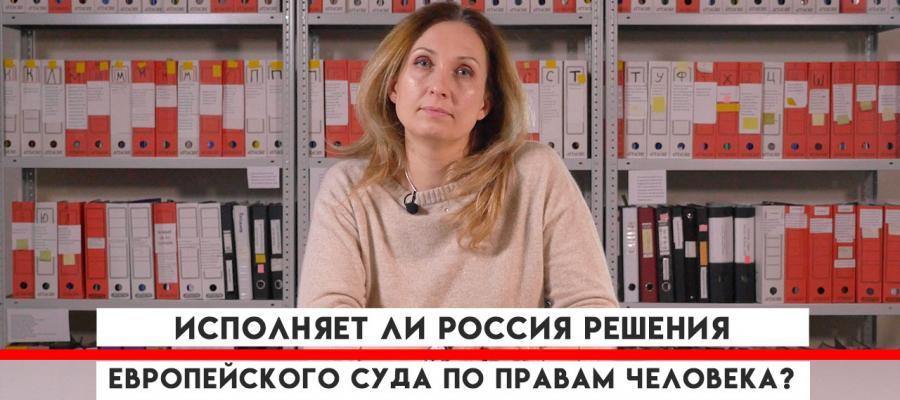
During the meeting with a working group for developing proposals with regard to introducing amendments to the Constitution, Vladimir Putin made a statement that Russia is executing all the rulings of the European Court of Human Rights, including the non-legal ones. Head of the Department of the International Legal Defense with the Committee Against Torture Olga Sadovskaya describes the real situation with execution of the ECHR rulings:
“Quite recently, Vladimir Putin made a series of high-profile statements concerning the role of the international law in regulating relations on the territory of Russia.
And, it is, probably, all rather clear about the supremacy of the Constitution over the norms of the international law. Indeed, what Putin said is stipulated in our main law and is a statement of the existing state of affairs.
Probably, certain categories of citizens will live in a more relaxed way after the President reminded of Article 15 of our Constitution.
However, another statement made by Vladimir Vladimirovich became a real revelation for the Committee Against Torture as an organization regularly dealing with submitting applications to the ECHR. The one that Russia is executing ALL the rulings of the European Court, including even non-legal ones.
What can we say about it? First of all, what is a “non-legal” ruling of the court? Non-legal ruling of the court, in principle, it’s like if the doctor treated with spells – i.e., with a non-medical method.
This is a ruling which does not correspond to the profession of the person who passed it. I do not know which specific ECHR rulings the President deemed non-legal, there is no precise information about it anywhere. Opinions were voiced that the ECHR is becoming a politically motivated institute, issuing the rulings in the cases involving the opposition, but this is a rather funny argument.
Most part of the rulings involve the violation of the right to freedom and personal integrity, the second most frequent category is the right to a fair trial, which includes the enforceability of the rulings. The rulings with regard to applying violence at rallies or other pressure on opposition look like a statistical discrepancy against the background of rulings about unfair trials, tortures and arbitrary incarceration.
At the present moment, Russia is officially not executing two rulings, based on the ruling of the Constitutional Court: one is Yukos case, the other is the case of Anchugov and Gladkov, which concerned the deprivation of the convicts’ voting rights. However, it is absolutely impossible to say that it is executing the other rulings.
Russia is not executing a great number of rulings, and, apparently, it is not planning to execute them, either, pretending that paying the compensation is the execution of the ruling. This is not so, the obligation with regard to execution of the ECHR ruling has three components: compensation, restoring the rights of the victim and taking measures which would prevent from such violation in future.
These are called the measures of individual and general nature, and we have a complete failure in this respect, especially with regard to general measures. Only in rare cases the applicants succeed in insisting that the persons guilty of violating their rights are brought to responsibility or their verdict is re-examined. As to the preventive measures, some attempts to fix the situation are performed based on pilot (precedent creating) rulings, as to the others, they are in a very bad shape.
According to the statistics of the Council of Europe, Russia with its 25% last year took the first place in the anti-rating for execution of the ECHR rulings. At least, we are first somewhere, although it seems we are the first from the end”.